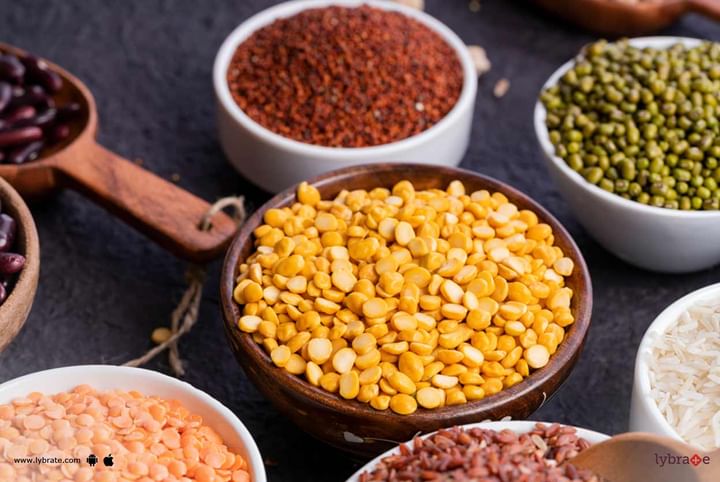Pulses - How Can They Enhance Our Health?
Most of us often ignore pulses in our daily diet, but they are not only good for people with gluten allergies, but also for vegans as they can fulfill their protein requirement. Most of the pulses consist of about 20-25 percent of protein by weight which is almost double the protein content present in wheat and triple the amount present in rice.
Pulses are not only a good source of low-fat protein, minerals, but also provide high-fiber content which helps in lowering the bad cholesterol levels (LDL). This, in turn, decreases the risk of type 2 diabetes and heart diseases.
Here are a few pulses and their benefits that should be added to your diet right away:
- Chickpeas (Chana): Chickpeas, also called garbanzo beans, surely deserve to be on the top of the list. Chickpeas are high in nutrition and contain some of the vital minerals and vitamins such as Vitamin B, Zinc, Phosphorous, Iron and Folate. These minerals and vitamins are essential for the body that take care of a host of body functions and metabolic activities. Chickpeas are rich in dietary fiber and proteins and are a healthy food choice for the heart, weight loss, diabetic patients, and people with hypercholesterolemia. They are also known to slow down the signs of skin aging by safeguarding the skin from the deleterious effects of free radicals. Since chickpeas contain a large amount of selenium, they are also highly beneficial for the liver.
- Yellow and red lentils (Toor dal and Masoor dal): The yellow lentil (toor dal) is one the most widely consumed lentil in India. They have a nutty flavor which makes it distinctive. Both red and yellow lentils are a part of the staple diet in our country. These lentils are a rich source of soluble fiber, magnesium, all of which act as a tonic for the heart, keeping the various heart ailments at bay. The soluble fiber in lentils is also helpful in the case of Hypercholesterolemia, keeping the cholesterol level within the healthy range.
- Mung beans (Moong dal): Moong dal is an excellent source of fiber, protein, phytonutrients, and antioxidants. This lentil contains oligosaccharides that help prevent bloating and gas. In some cases, it can also help in detoxification. One bowl of moong dal can provide your body with 100 percent of the daily recommended requirement of folate (vitamin required for DNA synthesis). This helps in cell and tissue growth, hormonal balance, cognitive function, and reproduction, thus keeping you in the best of health.
- Kidney beans (Rajma): Kidney beans also known as rajma are loaded with fiber-rich complex carbohydrates and a low glycemic index. Due to these properties, they provide a steady source of energy that can keep you going through the day. Kidney beans contain magnesium, a mineral that can contribute extensively to provide relief from kidney stones and the associated discomfort. They can be excellent food option for people with heart problems.
- Adzuki beans (Lal Fali): Adzuki beans also known as red beans or lal fali are considered one of the best sources of magnesium, potassium, iron, zinc, manganese and vitamin B. Owing to the high-potassium content, they can help in reducing the blood pressure to a great extent. Not only do they act as diuretics, but also aid in eliminating toxins from the body which in turn improves digestion. Laden with soluble fiber and play a pivotal role in keeping the cholesterol level within control. These are one of the best food options for diabetic patients as well as those who are trying to shed off a few extra kilos.
- Black-eyed peas (Lobia): Black-eyed peas are known for its magical properties that help lower cholesterol levels and help keep diabetes in control. Not only these, lobia is high in iron, protein, and folate content which makes it ideal for consumption during pregnancy. Their vitamin A and vitamin C antioxidants can help protect our bodies from damage caused by free radicals. Due to the high fiber and protein content, it helps in controlling hunger pangs which can aid weight loss.
However, consuming beans in excess should be avoided as it can trigger a sudden rise in blood pressure, or result in inadequate absorption of dietary vitamins.



+1.svg)
